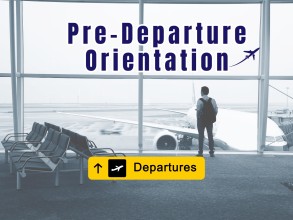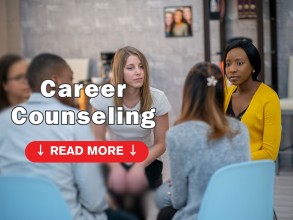Services
Interview Assistance

| Sr. | Headings |
|---|---|
| 1 | Understanding the Purpose of the Interview |
| 2 | Researching the Institution and Program |
| 3 | Preparing Responses to Common Questions |
| 4 | Practicing Mock Interviews |
| 5 | Mastering Nonverbal Communication |
| 6 | Managing Nervousness and Anxiety |
| 7 | Dressing for Success |
| 8 | Following Up After the Interview |
| 9 | Conclusion: Your Ticket to Study Abroad Success |
Understanding the Purpose of the Interview
The study abroad interview serves as an opportunity for admissions committees to learn more about you beyond your application materials. It allows them to assess your communication skills, personality, motivation, and suitability for the program. Understanding the purpose of the interview is the first step towards preparing effectively.
Researching the Institution and Program
Demonstrate your genuine interest and enthusiasm for the institution and program by conducting thorough research. Familiarize yourself with the university's mission, values, faculty members, research opportunities, and specific program offerings. Tailor your responses to highlight how your goals align with what the institution has to offer.
Preparing Responses to Common Questions
Anticipate common interview questions and prepare thoughtful responses in advance. Practice articulating your academic and career goals, reasons for choosing the program, strengths and weaknesses, and how you plan to contribute to the university community. Provide specific examples and anecdotes to illustrate your points.
Practicing Mock Interviews
Practice makes perfect, especially when it comes to interviews. Schedule mock interviews with friends, family members, or academic advisors to simulate the interview experience. Solicit feedback on your responses, body language, and overall presentation. Use these practice sessions to refine your answers and build confidence.
Mastering Nonverbal Communication
Nonverbal communication plays a significant role in making a positive impression during interviews. Pay attention to your body language, facial expressions, eye contact, and posture. Project confidence, professionalism, and enthusiasm through your nonverbal cues to convey a strong sense of presence and engagement.
Managing Nervousness and Anxiety
Feeling nervous before an interview is natural, but it's essential to manage your nerves effectively. Practice relaxation techniques such as deep breathing, visualization, and positive self-talk to calm your nerves and boost your confidence. Remember that the interview is an opportunity to showcase your strengths and accomplishments.
Dressing for Success
First impressions matter, so dress appropriately for your interview. Choose professional attire that reflects your seriousness and respect for the occasion. Opt for conservative and well-fitted clothing in neutral colors, and avoid distracting accessories or overly casual attire. Dressing for success demonstrates your professionalism and attention to detail.
Following Up After the Interview
Don't forget to follow up with a thank-you note or email expressing gratitude for the interview opportunity. Use this opportunity to reiterate your interest in the program, highlight any key points you may have missed during the interview, and reaffirm your enthusiasm for joining the university community. A thoughtful follow-up can leave a positive impression on interviewers.
Your Ticket to Study Abroad Success
At Global Education Counselling Centre, we're here to support you every step of the way on your study abroad journey. Our interview assistance services provide valuable guidance and resources to help you prepare effectively, showcase your strengths, and make a memorable impression during your study abroad interviews. Let us help you turn your study abroad dreams into reality!




